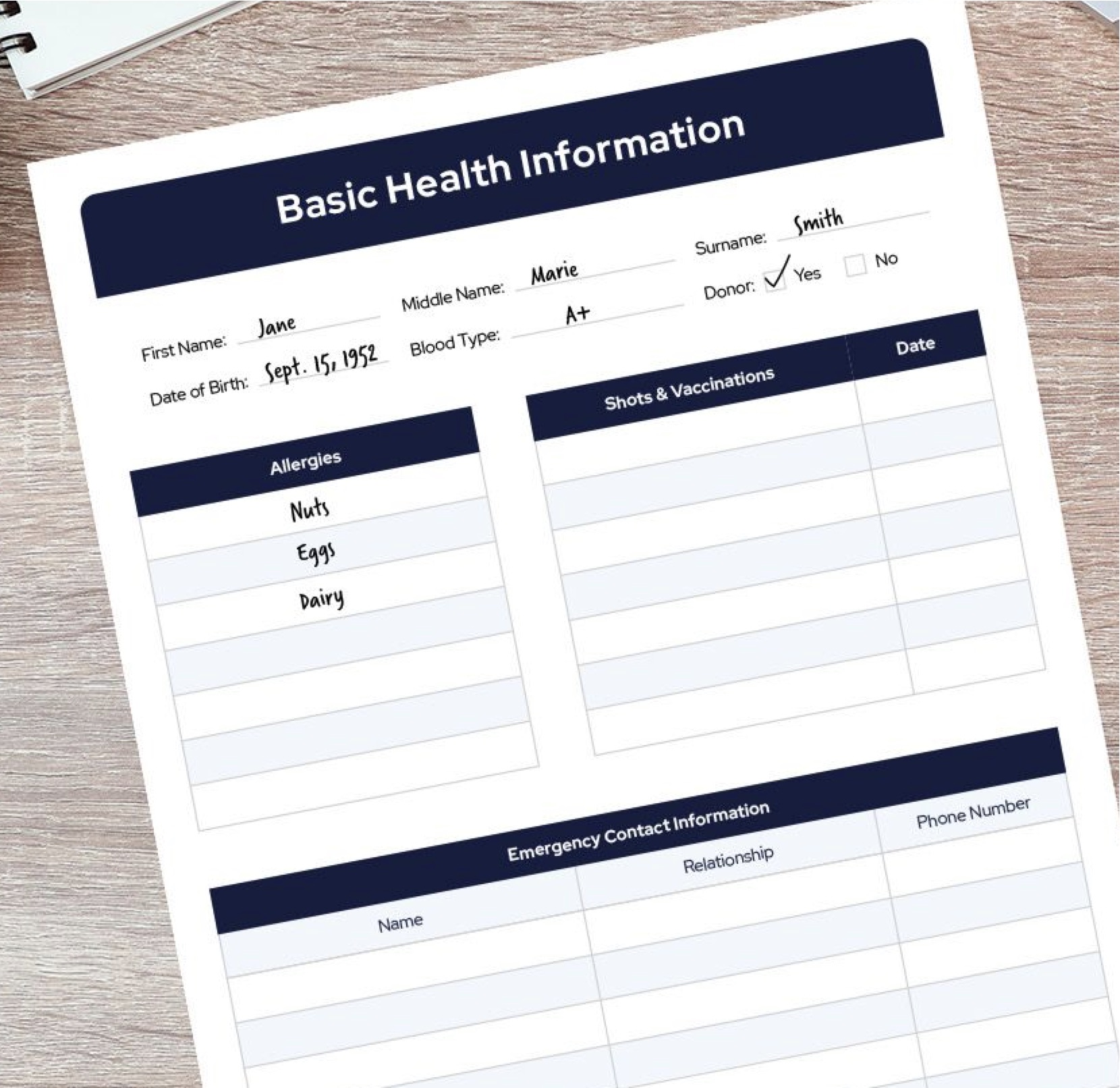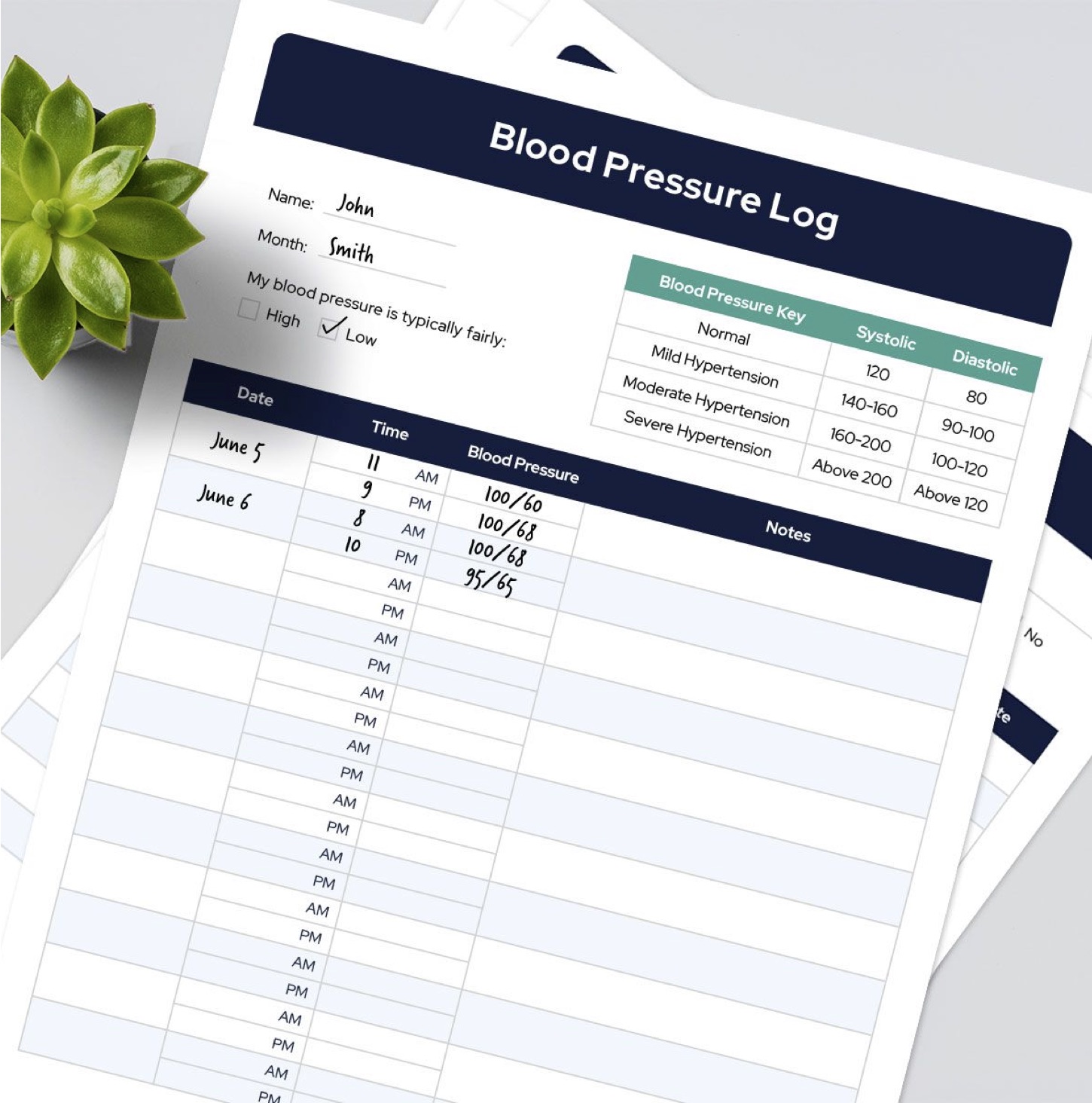
Medical Binder Printables to Keep Your Health Records Organized by Cristina Thorson offers forms you can use to keep track of your medical information so you can easily share it with your physicians rather than just talking about how you feel and neglecting what you can’t remember. Thanks, Cristina.
Introduction
- Whether you’re suffering from a chronic condition, wanting to keep your health information in order, or are somewhere in between, keeping a medical binder on hand can be beneficial. Having a medical binder not only helps you stay more organized, but it can also act as the single source of truth in case of an emergency.
- Thinking about possible “what-ifs” is never fun to do, but making sure you’re prepared for emergencies can make a worst-case scenario a little easier to manage. Use the medical binder printables to start putting together your own health binder. It might save your life one day.
Basic Health Information Sheet
- On a basic health information sheet, you should include the standard information that you might need to receive medical treatment. Usually, when you go in for an appointment, the healthcare clinic will need to have this information on file before you receive treatment.
- The information needed is your full name, emergency contact information, allergies, date of birth, blood type, and any immunization records. Keeping this information up to date and on file can save time if you decide to transfer doctors, or if you start going to a specialized healthcare professional.
Medication Tracker
- According to WebMD, about half the American population takes an average of four prescription pills. Some medications have conflicting effects which can have deadly consequences. If you keep track of your own medications, it will make it easier for doctors to ensure that they won’t prescribe anything that will have adverse effects on your health.
- Documenting your own medications can also help you and your doctor figure out what has worked in the past, and what hasn’t. It can help you avoid repeating medications, especially if you work with a new doctor or you haven’t been to a medical professional in a while.
- Keeping track of your blood pressure can save you a world of problems. Hypertension (or high blood pressure) has damaging effects over time, and many are unaware that they even have it. To record your own blood pressure, you should purchase a home blood pressure monitor.
- It’s best to avoid caffeine and exercise at least 30 minutes before you measure, and try to measure at the same time every day. Self-monitoring is actually recommended by the American Heart Association for people with high blood pressure treatments. Even though home monitoring isn’t an adequate substitute for visits, it can be helpful when healthcare professionals are trying to gauge the effectiveness of their treatments.
- It’s useful to be aware of your own medical conditions before a big life transition, like moving homes, leaving for college, or even planning for retirement. The temporary instability during these time periods may cause medical conditions to flare up. These changes may also influence your healthcare provider or the access to healthcare that you receive.
- Start surveying the information in advance of these changes so you’re not overwhelmed during the transitionary period. Make sure your information is up-to-date and easily understood. Many use their smartwatches or their phones to log health information, but you could also try an alternative tracking method, like our printable sheets.

Cristina Thorson
- Cristina is a part-time content writing intern at Siege and a full-time student at Boston University. She enjoys exploring new pockets of cities, culture, and cat websites (as well as alliterative expressions). In her spare time, she can be found reading books, commenting on movies, and writing anything from advertising copy to feminist satire.
DrDougGreen.com If you like the summary, buy the book





